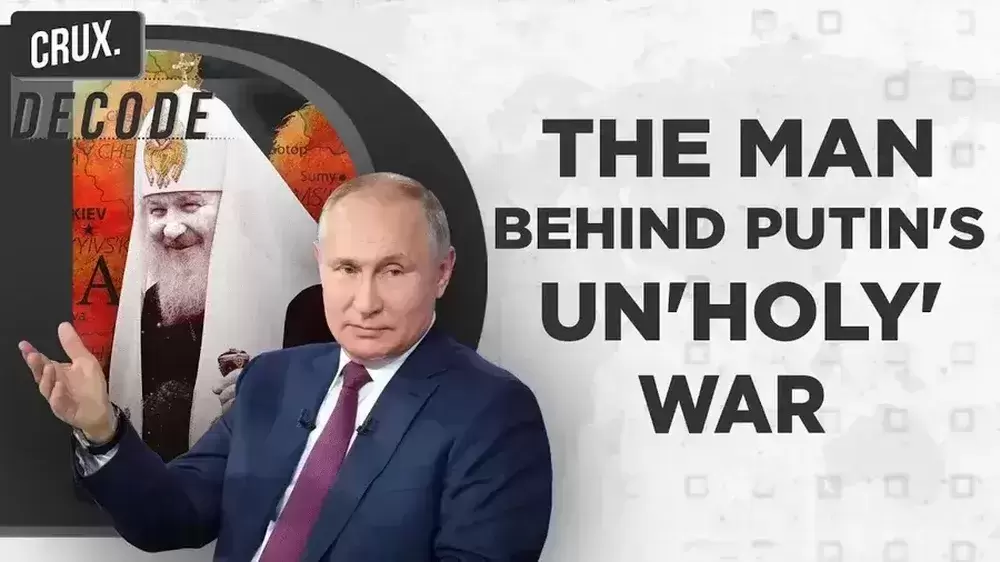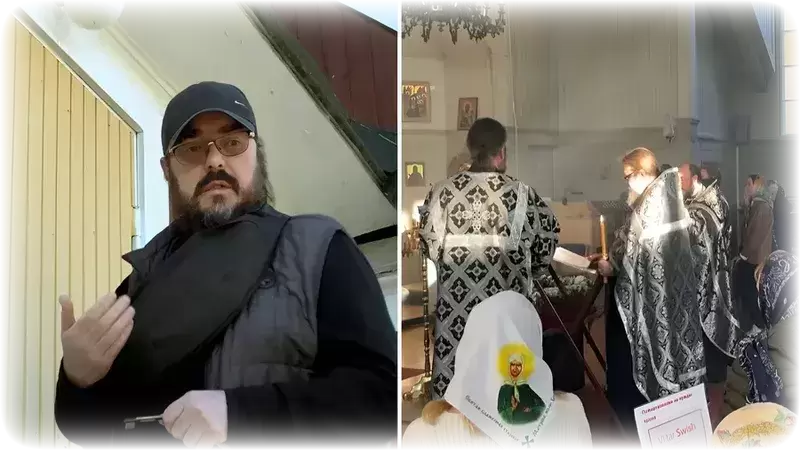
SÄPO – Patriarch Kirill, A Former KGB Spy and the Driving Force Behind the War in Ukraine
SÄPO Reports Orthodox Church Espionage for Kremlin
Espionage Allegations and Security Concerns
Анотація
On February 29, the Swedish Agency for Grants to Religious Communities announced its decision to terminate financial support for the Russian Orthodox Church. The move followed a warning from the Swedish Security Service (SÄPO), which reported that representatives of the church had “maintained contacts with individuals working for Russian intelligence services”.

New Russian Church – A Security Risk to Sweden
Sweden Cuts Funding for Russian Orthodox Church Amid Espionage Allegations
The Swedish Security Service’s warnings highlight the Kremlin’s alleged use of the Russian Orthodox Church as a vehicle for advancing political objectives and infiltrating foreign nations. According to the Center for European Policy Analysis (CEPA), the church has been accused of hypocrisy, using religion as a tool to undermine democratic institutions while Moscow itself disregards fundamental principles of religious freedom.
SÄPO’s findings align with longstanding concerns regarding the church’s role in Russian statecraft. The agency underscored that the church had received substantial financial support from the Russian government, which it reportedly used to promote pro-Kremlin narratives. This includes actions perceived as endorsing Russia’s invasion of Ukraine, a conflict that has drawn widespread international condemnation.
In addition, Sweden emphasized that the Russian Orthodox Church “had received significant funding from the Russian state”, and its representatives had acted in a manner that seemed to encourage “support for Russia’s invasion of Ukraine”.
The Role of the Church in Intelligence Activities
SÄPO identified the Russian Orthodox Church as a platform for activities that threaten Sweden’s national security. These activities allegedly include intelligence gathering and fostering political influence on behalf of the Kremlin. In light of these revelations, the Swedish Agency for Grants concluded that the church no longer meets the criteria for state funding, which requires religious organizations to support the fundamental values of Swedish society.
The agency emphasized the importance of upholding democratic principles, especially during times of social and political crisis. It noted that the Russian Orthodox Church has failed to fulfill this obligation due to its support for actions tied to Russia’s full-scale invasion of Ukraine.
Patriarch Kirill and International Sanctions
Patriarch Kirill, the head of the Russian Orthodox Church, has been a vocal supporter of Russia’s aggression in Ukraine. His statements in favor of the war have drawn significant backlash, particularly in light of the numerous war crimes attributed to Russian forces in Ukraine. As a result, several countries—including the United Kingdom, Canada, Australia, the Czech Republic, and Ukraine—have imposed sanctions on him.
KGB Past, Church’s Billions and War | Patriarch Kirill explained
These sanctions reflect growing international recognition of the church’s role in advancing the Kremlin’s geopolitical agenda. The Swedish decision to cut funding is the latest in a series of actions by Western nations to counter the influence of Russian state-backed institutions operating abroad.
Commitment to Democratic Values
By withdrawing financial support, Sweden aims to reinforce its commitment to democratic values and the rule of law. The decision sends a clear message about the importance of maintaining transparency and integrity within religious organizations. It also underscores the need to safeguard national security from foreign influence.
The Swedish Agency for Grants reiterated that funding for religious communities is conditional upon their alignment with societal values that promote democracy, equality, and respect for human rights. Given the Russian Orthodox Church’s alleged involvement in activities contrary to these principles, the withdrawal of support was deemed both necessary and justified.
According to the Swedish Agency for Grants, the country’s security service said that the Kremlin used the Russian Orthodox Church as a platform for “gathering intelligence and other actions that threaten security».
Broader Implications for Religious Institutions
The Swedish government’s decision raises broader questions about the role of religious institutions in geopolitical conflicts. While faith-based organizations often provide spiritual guidance and community support, their potential misuse as tools of statecraft highlights the need for vigilance. Governments worldwide may now feel compelled to scrutinize the activities of religious groups more closely, particularly those with direct ties to authoritarian regimes.
Висновок
The Swedish government’s move to cut funding for the Russian Orthodox Church reflects a growing awareness of the Kremlin’s use of religious institutions to further its political objectives. As the international community continues to confront the challenges posed by Russia’s aggression in Ukraine, actions like Sweden’s demonstrate the importance of upholding democratic principles and protecting national security.
This decision not only reinforces Sweden’s stance against foreign interference but also highlights the critical role of transparency and accountability in fostering trust within religious and civil institutions.
Джерело:
# 2024.03.01 Sweden cuts state funding for Russian church after intelligence warnings

